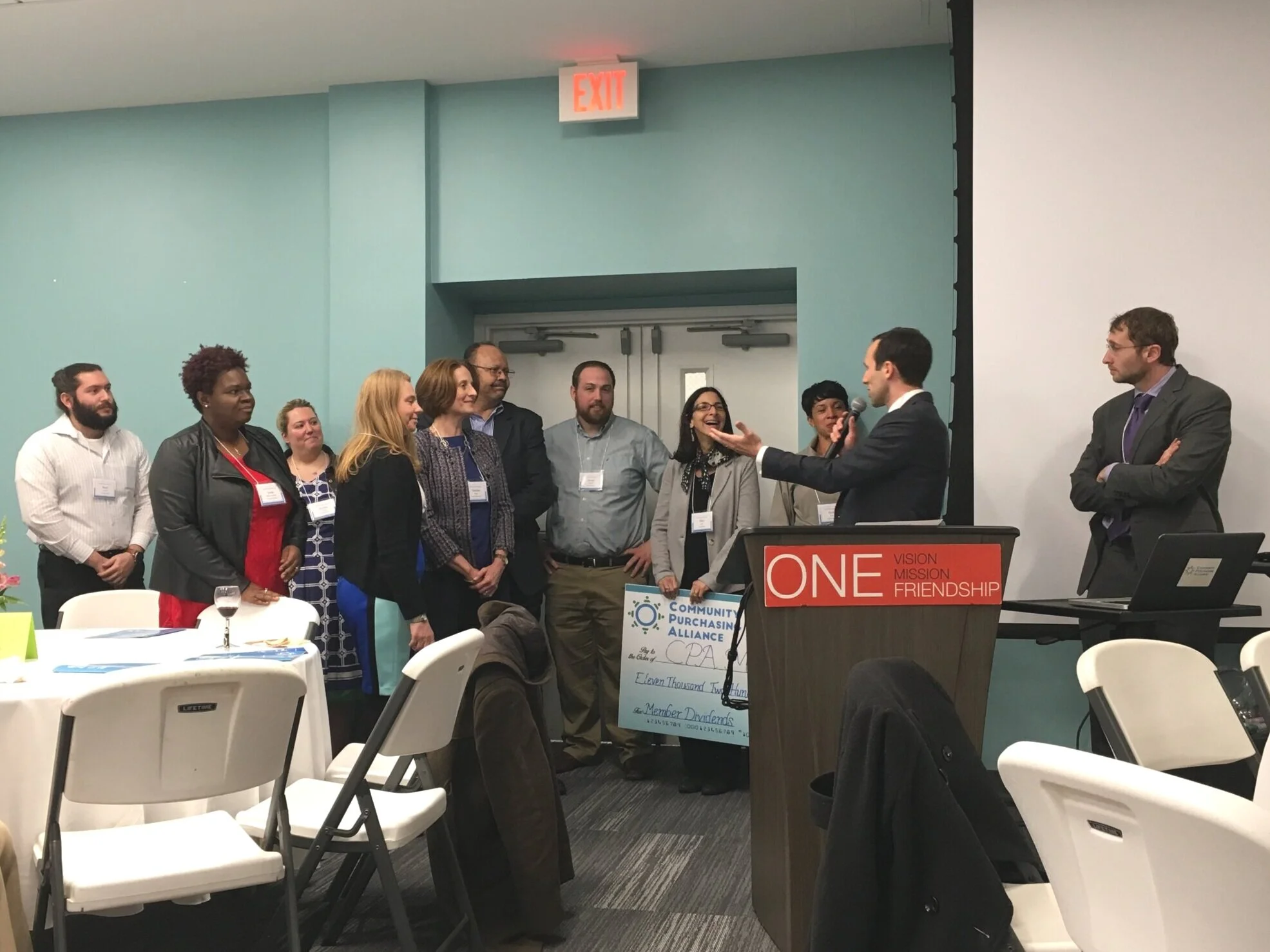One Bread, One Body: Finding Unity in Economic Justice
It’s not hard to see the great work that CPA is doing. The cooperative has brought hundreds of organizations together. And, together, these organizations have invested nearly $10 million in minority-owned businesses. Together, these organizations have redirected hundreds of thousands of dollars to renewable electricity and away from fossil fuels. Together, these organizations have contracted with facility cleaning companies that pay employees a living wage. But CPA does something else with all this togetherness—perhaps less intentionally—that gets me really excited as a Christian: CPA is radically healing the divisions in the church body.
In early September, I had the privilege of working with CPA on building a new website for a new initiative in Boston [https://bostoncpa.org]. I enjoyed the work of gathering together CPA’s vast resources and then distilling those resources into the compelling story of CPA’s value to local Boston institutions. The final part of my work was to present the information in a format optimized for the Internet.
Crafting a compelling narrative is challenging and also satisfying. I wanted to share enough information that users of the site would be convinced of CPA’s credibility and proven track record. At the same time, if I included too much material, the majority of users would not be able to find the information they needed. Then I had to think about how to organize the information to guide the user from one section of the site to another.
The process of investigation and solutions engineering is interesting and engaging work, but the real problem I saw myself tackling was that of church disunity. Right before Jesus is arrested and led to his crucifixion, he prays for his disciples to be unified. Jesus says, “I ask not only on behalf of these, but also on behalf of those who will believe in me through their word, that they may all be one” (John 17:20-21). And yet, the church has largely failed to live up to Jesus’ desire for us. From its birth, the church has been fractured and divided, no less polarized today than it was in millennia past.
The early church fiercely debated whether Mary was “the Mother of God.” That particular debate, while not resolved, usually does not stir quite the same heated emotions it once did. Some historic debates, such as just what happens to the bread and the wine in the Holy Communion, continue to be a subject of modern-day sermons. New fights have also arisen over the meaning of marriage and the qualifications for ordination. I know Christians who refuse to break bread with those who don’t see eye-to-eye with them on these issues. If the church is the body of Christ, as scripture claims it to be (1 Corinthians 12.12-31), then our disunity is rending apart the very one who came to save us.
I am encouraged by CPA’s work because the cooperative is tangibly healing the divisions that we are creating in the church. CPA creates real relationships between churches that might otherwise never meet. These two congregations do not need to agree on what happens during Communion in order to come together to save money on electricity. They do not need to hold the same meaning of marriage or qualifications for ordination in order to come together to pay their janitors a living wage. The real relationships that the cooperative is building succeed where theological conversations fall apart. These real relationships are the foundation for a unified church. And ultimately, I hope that this is just the beginning of Jesus’ prayer becoming manifest.
Guest Contributor Alex Smith is a 3rd year Master of Divinity student at Yale Divinity School.


